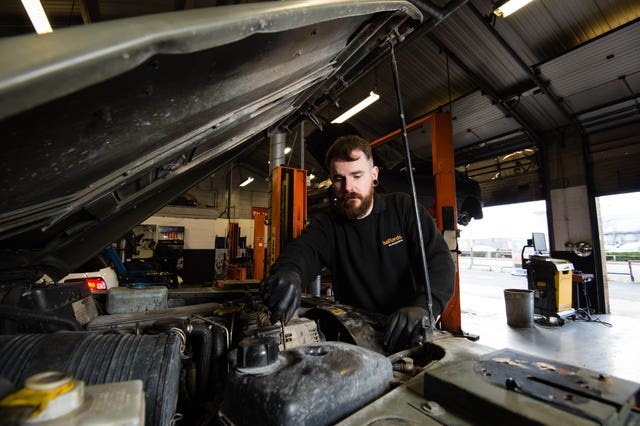Eight ways to drive more economically
Being careful about how you drive can save money and reduce emissions.

Efficiency and economy are two big words in the world of motoring at the moment. With more stringent emissions rules coming into play, cars are needing to be greener and more eco-friendly than ever before. It’s why we’re seeing a big boom in the number of hybrids and efficient petrol-engined cars on the market today.
But there are ways that you can drive more efficiently in an existing car, too. Euro Car Parts has set out some of the simple and easy ways to drive more economically, saving both emissions and money, too.
Use the right oil for your car

>
Making sure that you use the correct oil type for your car will ensure that its engine runs as smoothly and efficiently as possible. There are many different grades to choose from, however, which can make things a little confusing.
However, all you need to do is refer to your vehicle’s handbook, which will tell you the correct oil to use. Failing that, you could always ring a local garage and they’ll likely be able to help you out.
Don’t leave your car idling

>
Leaving your car to idle creates additional exhaust fumes, which could potentially land you with an £80 fine if you’re caught idling for a considerable period. So, if you’re going to be parked or stationary for a while, switch your engine off.
If it’s cold and you need to de-ice your windscreen, then avoid the temptation to idle your car here too – use a scraper instead.
Travel light
Carrying extra weight in your car will cause it to use more fuel. Therefore, make sure that any unnecessary items are removed from your vehicle as this will help to reduce your fuel usage.
If they’re not in use, remove roof racks and rails too, as well as any bike racks. These generate additional drag which will bring your fuel consumption right up.
Reduce use of electrics
Try switching off your in-car appliances when they’re not needed, as this will reduce the amount of draw on the battery and engine. Think about whether you need to have the air-conditioning running and leave charging your mobile phone until you’re home.
Lots of little changes can make a big difference, after all.
Get your car routinely serviced

>
Ensuring that your car gets routinely serviced is another great way of keeping it running as smoothly as possible. Rules on MOTs in relation to emissions are stricter than ever, but you shouldn’t wait until it’s time for your MOT to get your car serviced.
Make sure that you’ve got a date in place to get your car serviced, or use the vehicle’s servicing plan. This can often be found in the on-board computer, or in the servicing manual.
Check tyre pressures

>
Having your tyres inflated to the correct pressures can make a world of difference to efficiency. Around 20 per cent of a car’s fuel is burned while overcoming rolling resistance, so if your tyres aren’t inflated correctly then you’ll use a lot more fuel.
Make sure that they’re at the right levels by using a tyre pressure gauge, or use an air compressor – usually found on petrol station forecourts.
Stick within the speed limit
Sticking to the speed limits will help you save more money on fuel. Driving at 60mph will use 15 per cent more fuel than when you’re travelling at 50mph, so sticking to the required speed limit really can make a difference on your fuel use.
Shift smoothly

>
Over-revving will waste fuel and cause your car to kick out more emissions. The way you change gears can save up to 15 per cent on fuel usage according to Euro Car Parts, so try to change gear before reaching 2,500 revs in a petrol car and 2,000 in a diesel.
Lower gears require the engine to work harder, so shifting into higher ones puts less strain on the car and, as a result, allows it to use less fuel.





